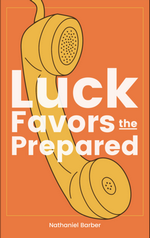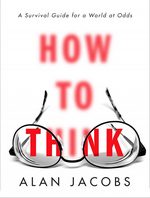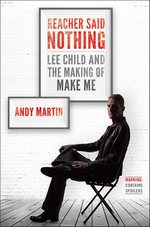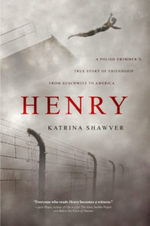Like every single year, I didn’t read as much Non-Fiction as I meant to — but I did read a decent amount. These are the best of the bunch.
(in alphabetical order by author)
 Luck Favors the Prepared
Luck Favors the Prepared
My original post
Nathaniel Barber has a real gift at taking embarrassing (mortifying?), frustrating, and/or inexplicable episodes from his life and turning them into amusing tales. Some of the best descriptive passages I read this year — no matter the genre. I won’t promise you’ll like every story in this collection of short autobiographical pieces, but you’ll like most of ’em — and you will find something in the rest to appreciate. Fun, heartwarming, and disturbing — sometimes all at once.


 How to Think: A Survival Guide for a World at Odds
How to Think: A Survival Guide for a World at Odds
by Alan Jacobs
My original post
As Carl Trueman asked Jacobs, how do you give this book to someone with that title? It’s a shame you can’t give it as a gift without implicitly insulting someone, because this needs to be given to everyone you know — especially everyone who spends any time online. Entertaining, convicting, convincing, challenging. This is as close to a must read as I came across last year (maybe in the last two).


 Reacher Said Nothing: Lee Child and the Making of Make Me
Reacher Said Nothing: Lee Child and the Making of Make Me
by Andy Martin
You know how many times I’ve tried to write about this book? I read it back in January and am still enthused about it. Part literary criticism, part author biography, part fan letter — Martin follows Lee Child through the writing of Make Me, and delivers one of the most enjoyable reads from last year — easy. It’s like the one of your favorite DVDs with a fantastic set of commentaries and special features, but somehow better (for one thing, it’s not like Martin’s drowning out the best scenes with his blather). It reminds me of talking about Child/Reacher with a good friend (which I do pretty frequently) — but Martin’s more erudite than either of us. Just so much fun.


 Henry: A Polish Swimmer’s True Story of Friendship from Auschwitz to America
Henry: A Polish Swimmer’s True Story of Friendship from Auschwitz to America
by Katrina Shawver
My original post
Unlike the Jacobs book, I do know how to give this to people — and I have. The writing could be sharper — but the story? It’ll reshape the way you think about the Holocaust — not by lessening the horror, but by broadening your view. This story of survival is one that will stay with you.




